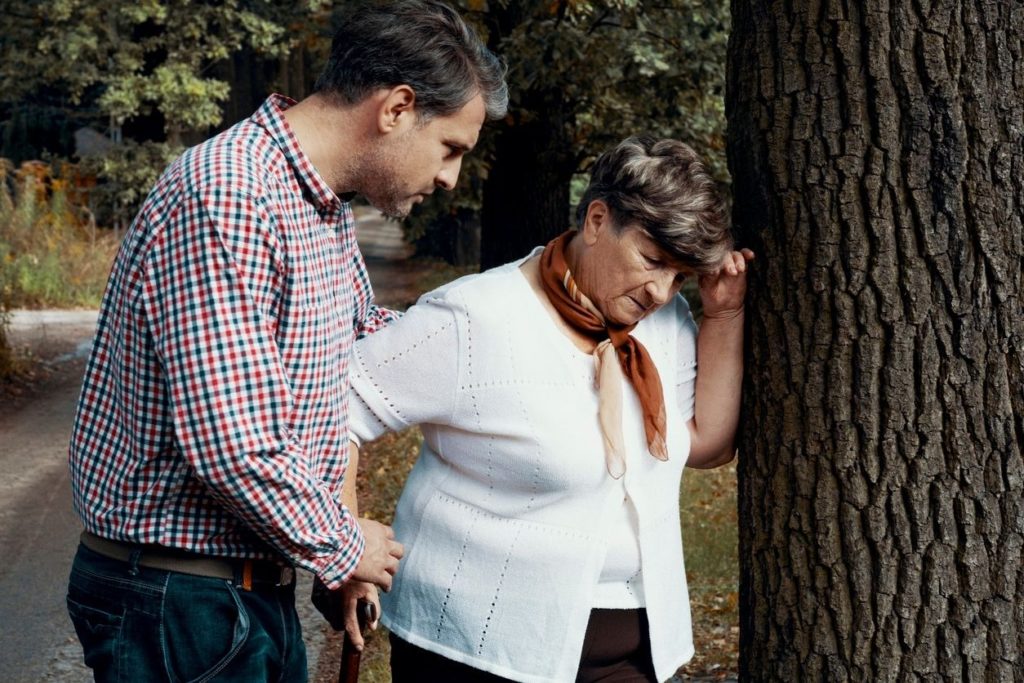Constant shortness of breath in the elderly : what solution ?
Caution : You must consult your doctor for your health. This page presents only a personal and alternative point of view which should not be considered as an attempt to prescribe medicine.
Shortness of breath is normal after intense exertion.
It can be defined as increasing the rate of breathing to allow the body to increase the supply of oxygen.
It becomes suspicious when it occurs after minimal or even effortless exertion, gets worse, or is followed by other symptoms such as chest pain.

It is characterized by a painful sensation, discomfort while breathing, such as increased strain on ventilatory work, thirst for air, or even choking.
Note that physiological changes in pulmonary function and the cardiovascular system occur naturally with age.
However, diagnosis is often difficult either because it is an atypical case or because the heart and lung conditions naturally overlap.
The causes
There can be several reasons for chronic shortness of breath in the elderly.
They can be natural or clinical.
Among the natural causes, we find the aging of certain organs such as the nasal mucosa, the lungs, and the heart.
It can also be the consequences of an unsupported stay at high altitude, of being overweight, of generalized anxiety, or even of smoking.
The clinical causes are rather distinguished by anemia, side effects of ongoing treatment, respiratory pathologies (asthma, pneumonia, chronic obstructive pulmonary disease [COPD], pneumonia, idiopathic pulmonary fibrosis, fibrosis. cystic, tuberculosis, etc.).
Certain heart conditions, carbon monoxide poisoning or more rare diseases such as Guillain-Barré syndrome or myasthenia gravis can also be at the root of the problem.
The consequences and the risks
The diagnostic and therapeutic management of this anomaly is neither standardized nor optimal.
It causes accelerated muscle wasting due to lack of physical activity, constipation and weight gain which worsen respiratory discomfort.
The constant shortness of breath limits movement and makes daily activities such as climbing stairs, cleaning, or simply putting on shoes or going to the bathroom difficult.
It can also cause poor oxygenation of organs or acute dyspnea in the elderly.
Many illnesses from the age of 50 manifest themselves in the form of shortness of breath.
These include past myocardial infarctions, heart disease causing abnormal dilation of the heart, dysfunction of heart valves, atrial fibrillation, pulmonary arterial hypertension, or lung cancer.
Some advice
Generally speaking, if you get easily short of breath in old age, here are some tips to resolve your problem.
You can analyze with your doctor, the nutritional balance necessary to maintain the respiratory musculature and to avoid anemia.
You may want to consider treating any change from treatment that is short of breath, as well as your smoking and weight gain habits.
You should avoid foods that promote gas that help distend the abdomen and prevent proper ventilation at the base of the lungs.
You can also do breathing exercises, yoga for at least 20 minutes twice a week from the age of 50 for men and 60 for women.
If shortness of breath is related to an asthma attack, inhalation therapy may relieve symptoms.
However, in the event of cardiac pathology, appropriate management will limit the symptoms, as far as possible.
Thus, avoid exposure to air pollution, as well as stays at altitude.
After a certain age, you owe it to yourself to take care of your health.
So be careful if you have any symptoms related to shortness of breath, as they may be hiding something else.
Indeed, they could hide serious pathologies but also sometimes simply a blockage of the diaphragm.
In any case, in addition to obtaining medical advice, you can take this video workshop which provides sound advice for the elderly who have shortness of breath and a blocked diaphragm.
❤ The ultimate guide to breathing
Intermittent Breathing : Discover the method to quickly relieve your anxiety and chronic fatigue (positive effects from the first use).Read also :
Previous article : Shortness of breath while eating or after a meal: what to do?
Next article : Anguish and tight throat from shortness of breath ?

